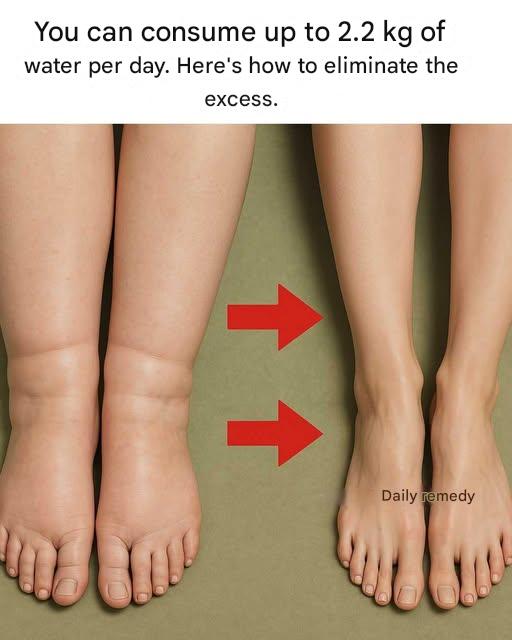ADVERTISEMENT
Water weight refers to excess water stored in body tissues, which can lead to bloating and swelling, particularly in the abdomen, legs, and arms. It is a temporary condition, often due to dietary choices, lifestyle factors, or hormonal changes. Understanding the causes of water weight is the first step to effectively managing it. While it is normal for body weight to fluctuate by a few pounds throughout the day, gaining up to 2.2 kg can be worrisome and uncomfortable.
Understanding the Science Behind Water Retention
Water retention, or edema, occurs when fluids accumulate in the body. Composed of approximately 60% water, the body plays a crucial role in various bodily functions. However, a fluid imbalance can lead to water retention. This may be due to an imbalance in electrolyte levels, such as sodium and potassium, which regulate the body's water balance. Hormonal fluctuations, particularly those related to the menstrual cycle, can also affect water retention.
Common Triggers of Water Weight Gain
Several factors can trigger water retention, including excessive sodium intake, dehydration, lack of physical activity, and hormonal fluctuations. Consuming processed foods, often high in sodium, can increase water retention. Additionally, dehydration can cause the body to retain water as a protective mechanism. Hormonal changes, such as those seen during menstruation or pregnancy, can also lead to temporary weight gain due to water retention.
The Impact of Diet and Lifestyle on Water Retention
Diet and lifestyle play a significant role in the amount of water you store. A diet high in processed foods and low in fresh fruits and vegetables can contribute to water retention. Additionally, a sedentary lifestyle can exacerbate the problem, as regular physical activity stimulates circulation and reduces fluid retention. Stress and lack of sleep can also affect hormone levels, which in turn can affect water retention.
Recognize the symptoms of excess water
ADVERTISEMENT
